YOUR BROWSER IS OUT-OF-DATE.
We have detected that you are using an outdated browser. Our service may not work properly for you. We recommend upgrading or switching to another browser.
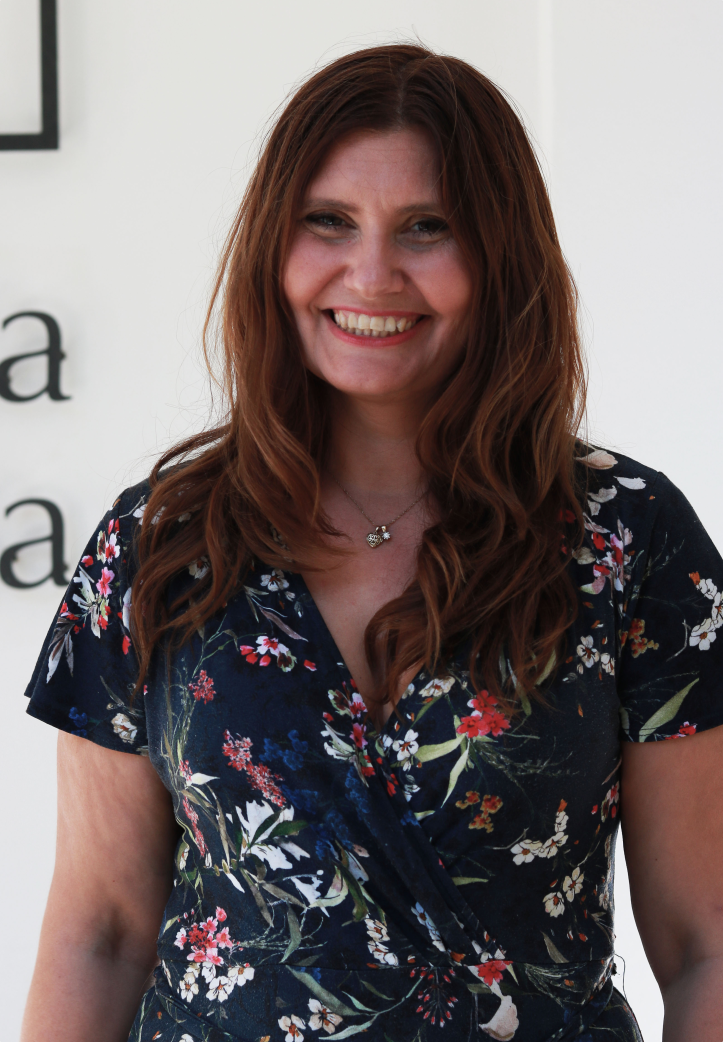 Prof. Katarzyna Matczyszyn, DSc, PhD, Eng. - principal investigator
Prof. Katarzyna Matczyszyn, DSc, PhD, Eng. - principal investigator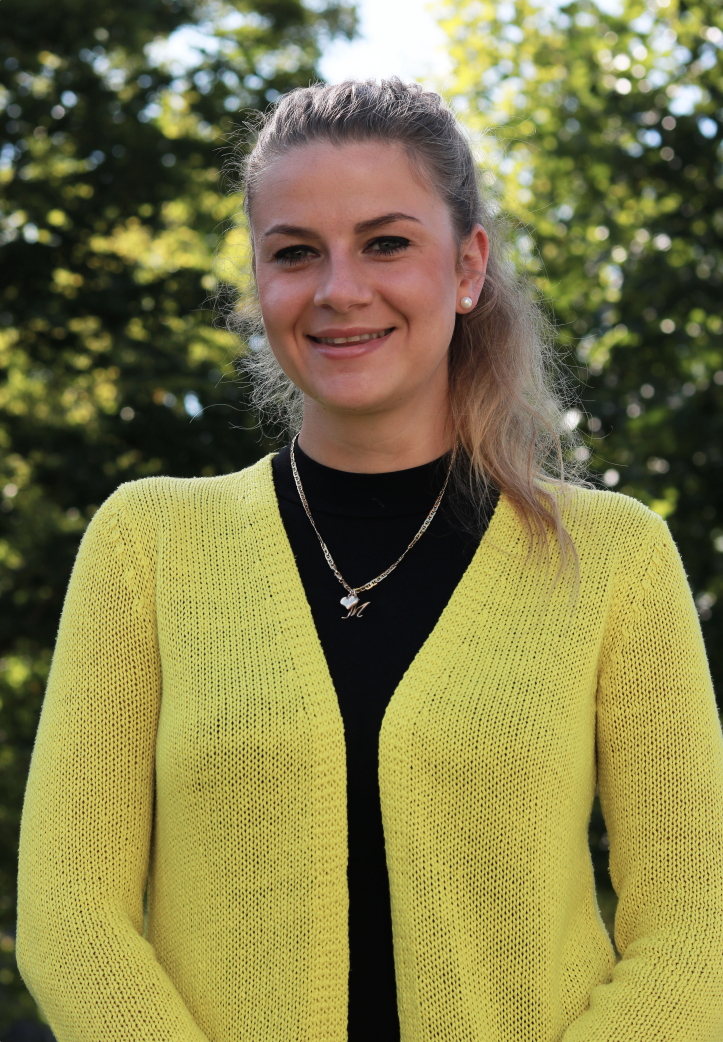 Dr. Marta Dudek, PhD, Eng. - research assistant
Dr. Marta Dudek, PhD, Eng. - research assistantMarta Dudek is an assistant professor at the Institute of Advanced Materials at Wroclaw University of Science and Technology, where she obtained her PhD degree in 2019 in the discipline of chemical sciences. She gained additional experience during several internships at the: University of Strasbourg (France), École Normale Supérieure in Cachan (France), Humboldt University (Germany), Institute des Sciences Chimiques de Rennes (France) and University of Neuchâtel (Switzerland). Her scientific interests involve the design, synthesis and characterization of new organic compounds, mostly molecular switches, as well as their application to modulate the function/structure of biopolymers. Marta Dudek received two grants for her research: Preludium and Sonata from the National Science Centre. She is a scholarship holder of the prestigious scientific awards: scholarship by the Ministry of Science and Higher Education in Poland for PhD students, START Scholarship awarded by The Foundation for Polish Science.
Scientific interests:
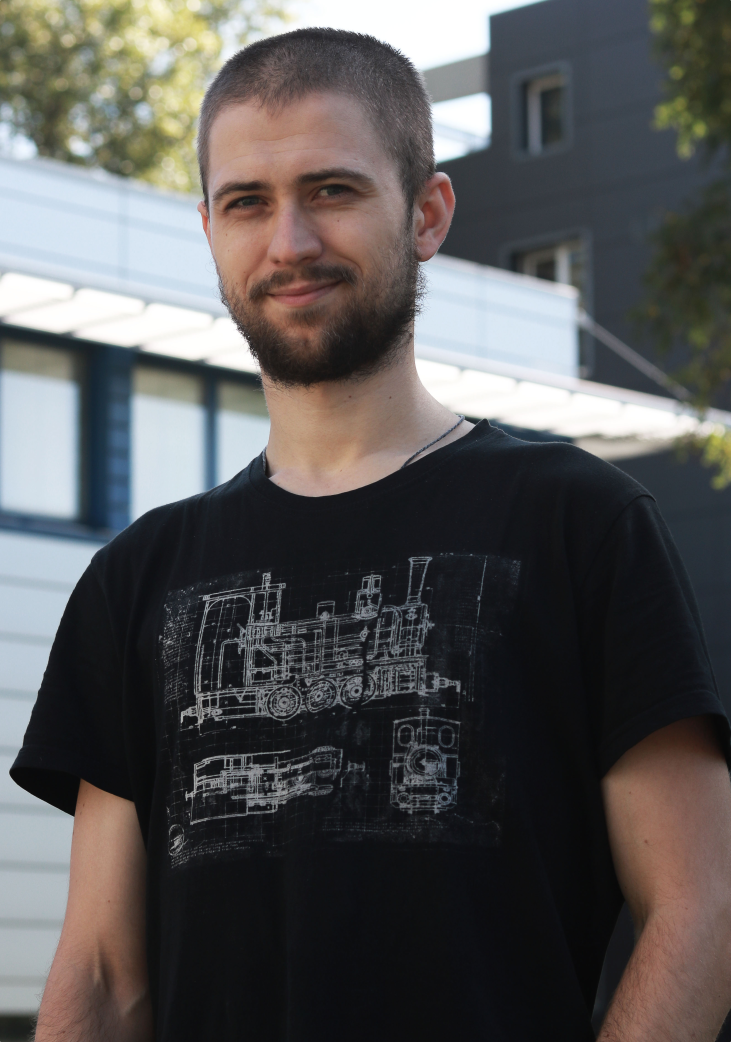 Dr. Radosław Deska, PhD Eng. - research assistant
Dr. Radosław Deska, PhD Eng. - research assistantDr. Deska finished his PhD thesis at the Faculty of Chemistry in Wroclaw University of Science and Technology in the topic of nano- and microcrystals photophysics under the supervision of Prof. Katarzyna Matczyszyn, DSc PhD Eng. To his area of interest belong mainly techniques of nonlinear microscopy and spectroscopy. In the scope of the spectroscopic methods are: the application of acoustic phonons as carriers of information about optical absorption and time-resolved terahertz spectroscopy.
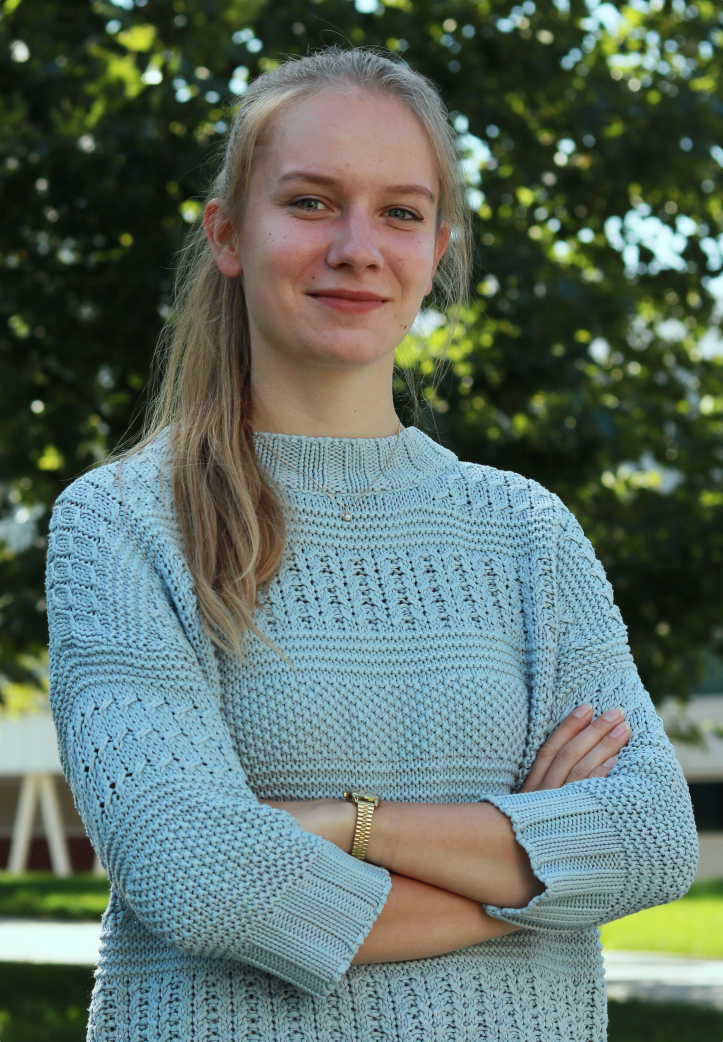 Dominika Benkowska-Biernacka
Dominika Benkowska-Biernacka Dominika Benkowska-Biernacka completed her bachelor’s degree in Materials Science at Wrocław University of Science and Technology. Then she received her master’s degree in Master Molecular Nano- and Bio-photonics for Telecommunications and Biotechnologies at École Normale Supérieure Paris-Saclay. Moreover, she gained her research experience at the Institute of Genetics and Molecular and Cellular Biology (France), Catholic University of Leuven (Belgium), and the University of Colorado Boulder (USA ).
Currently, she is a PhD student enrolled in the BioTechNan program at WUST. She works under the supervision of Professor Katarzyna Matczyszyn at the Institute of Advanced Materials. Her research interests include lyotropic liquid crystals and applications of nanomaterials in biological systems.
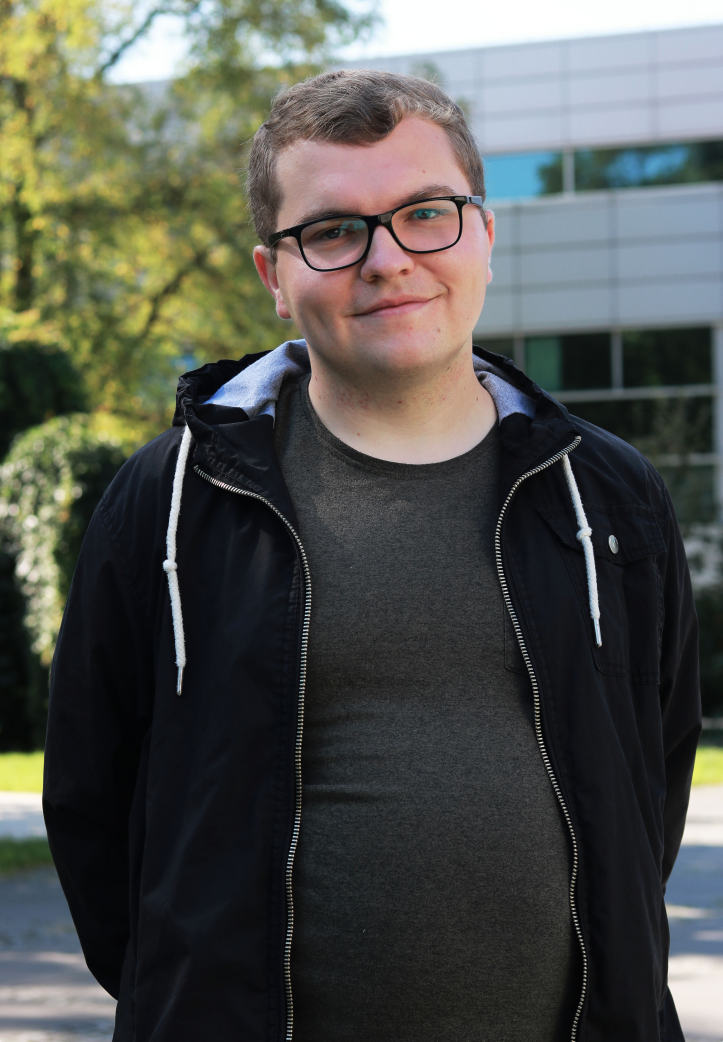 Krzysztof Nadolski
Krzysztof Nadolski I received my Bachelor of Engineering in Technical Physics at the Faculty of Fundamental Problems of Technology of Wroclaw University of Science and Technology (WUST) in 2017. In 2016 I took part in the Erasmus+ programme,which allowed me to take part in laboratory research in the Institute of Chemical Technology at University of Leipzig (Germany). In my Master studies at the Faculty of Chemistry of WUST I joined the group of Prof. Marek Samoć, thusin 2018 I obtained my Master degree.
Currently I am a PhD student of BioTechNan programme cofunded by the European Union. My supervisors are Prof. Katarzyna Matczyszyn from WUST and Prof. Pierre-Francois Brevet from Institut Lumiere Matiere,Universite Lyon 1 (France). I work on use of nonlinear optical processes for sensing and photodynamic therapy. My scientific interests include plasmonic nanoparticles and nonlinear optics.
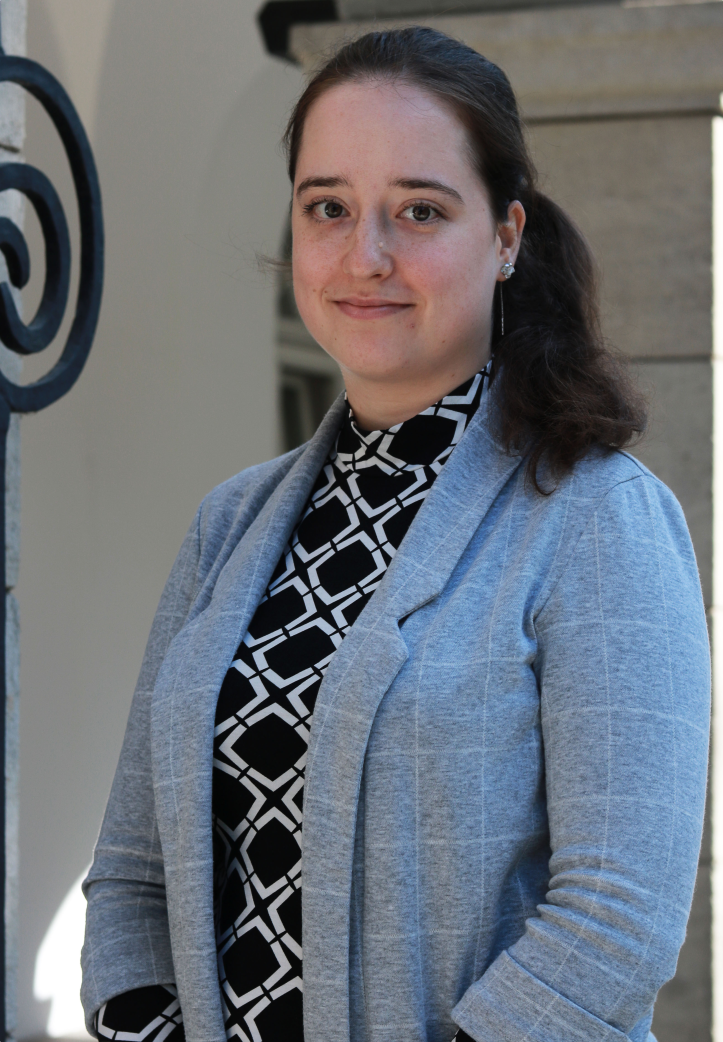 Nina Tarnowicz-Staniak
Nina Tarnowicz-Staniak Nina Tarnowicz-Staniak received her MSc degree in Materials Science from Wrocław University of Science and Technology in 2018. Currently, she is a PhD candidate in Materials Science under the supervision of Prof. Katarzyna Matczyszyn (Faculty of Chemistry, Wrocław University of Science and Technology) and Dr. Marek Grzelczak (Centro de Física de Materiales, CSIC-UPV/EHU). Her PhD project is focused on plasmonic nanoparticles as components of advanced materials. Her research experience involved also several internships in Université de Rennes 1 (France), University of St Andrews (Scotland), and Donostia International Physics Center (Spain). Her research interest is focused on plasmonic gold and bimetallic nanoparticles, their modification, and application in photo-driven processes such as photocatalysis. Nina is also a PI of NCN Preludium grant – Two-Photon Absorption of Bimetallic Plasmonic Nanorods - Systematic Studies (2021/41/N/ST5/04470).
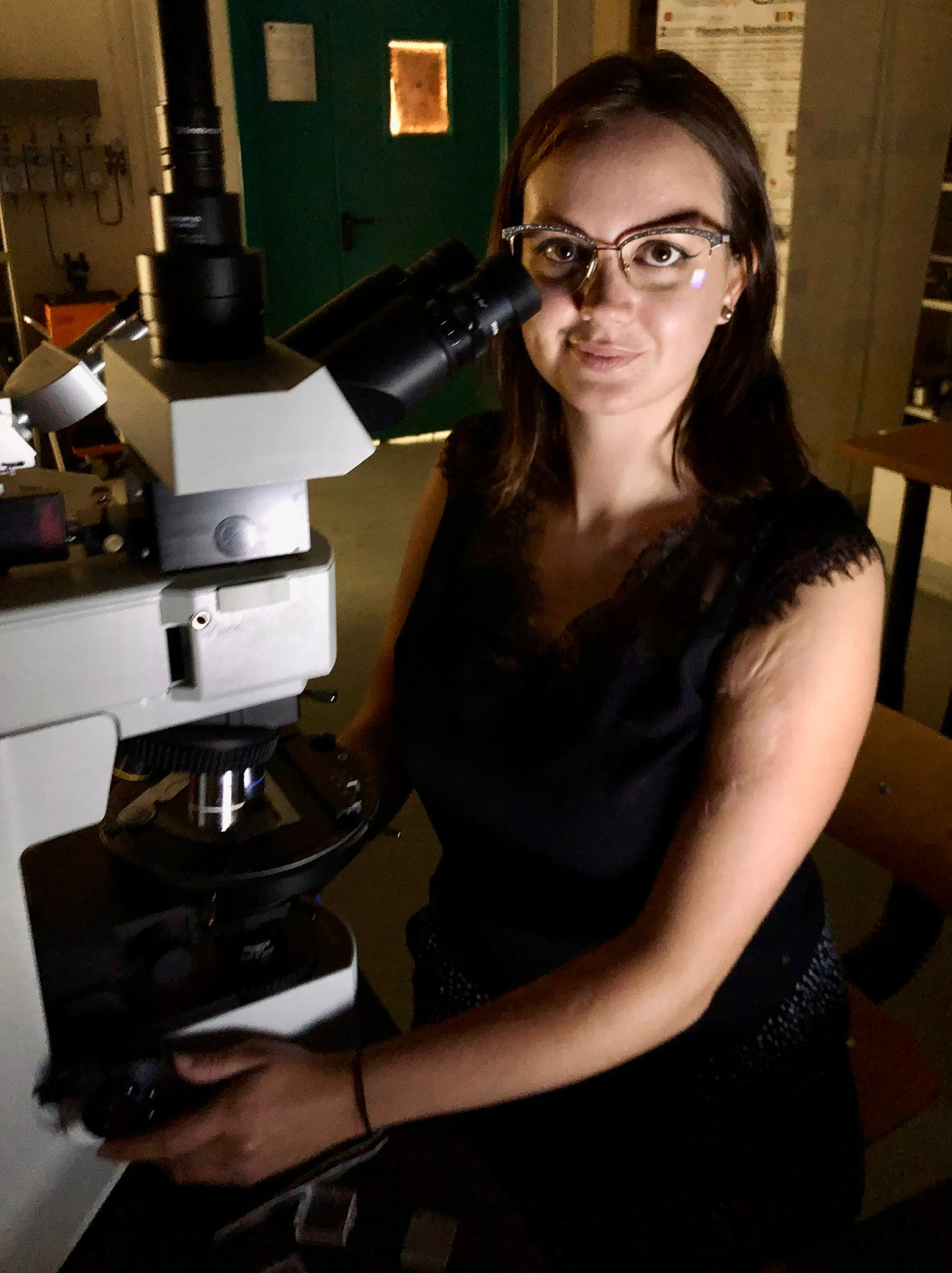 Olga Kaczmarczyk
Olga Kaczmarczyk In 2021, I completed my master's degree in Advanced Nano- and Bio-materials MONABIPHOT at the Faculty of Chemistry of Wrocław University of Technology, after which I immediately started my PhD at the Doctoral School of Wrocław University of Technology under the supervision of Prof. Katarzyna Matczyszyn and Dr. Andrzej Żak, Eng. My research interests include the study of liquid crystal nanocomposites, photodynamic therapy and correlation of various microscopic techniques. The main microscopic technique used in my research is in-situ transmission electron microscopy (TEM). In addition, I completed an international internship at the Institute of Applied Sciences and Intelligent Systems of CNR Pozzuoli (Italy), during which I worked on the optimization of photomobile liquid crystalline polymers based on azobenzene derivatives. I am currently on an international internship at the Massachusetts Institute of Technology (MIT) in Cambridge (USA), where I am gaining experience in using liquid-cell TEM and ETEM methods. Contact: olga.kaczmarczyk@pwr.edu.pl
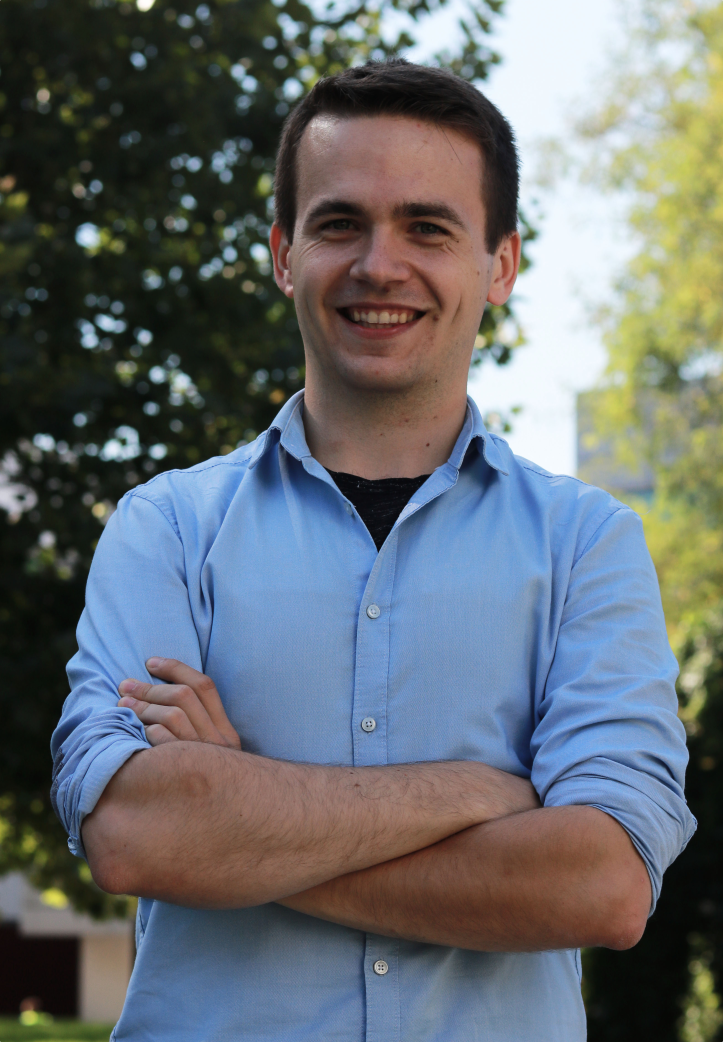 Sebastian Mucha
Sebastian Mucha Sebastian completed his Bachelor’s degree in Chemistry in 2017 at Wroclaw University of Science and Technology. In 2019 he received simultaneously two Master’s degrees: in Molecular Nano- and Biophotonics for telecommunications and biotechnologies (MONABIPHOT) at École Normale Supérieure Paris-Saclay (France, graduated with honors) and in Material Science at WUST. While studying, he went on international research internships, inter alia, working in the School of Physics & Astronomy at University of St Andrews (Scotland) and the Laboratory of Organic Materials for Information Processing (LOMIP) at Yonsei University, Seoul (South Korea). Since September 2019, he is a Ph.D. student, working under the supervisions of Professor Lucyna Firlej and Professor Katarzyna Matczyszyn in Laboratoire Charles Coulomb (L2C, Nanomaterials) at University of Montpellier (France).
His scientific interests include carbon quantum dots, carbon nanodots, and polymer dots – synthesis, structural characterization, along with linear and non-linear optical properties (e.g. multi-photon absorption) for their applications in bioimaging, drug delivery systems, and optoelectronics, linear and non-linear optical properties of semiconductor nanocrystals and new organic dyes, measurements of multi-photon excited emission and Z-scan technique, computational chemistry: molecular dynamics and Monte Carlo methods. You can contact Sebastian via private mail or UMontpellier email. You can find out more about him on website, at Research Gate or at LinkedIn..
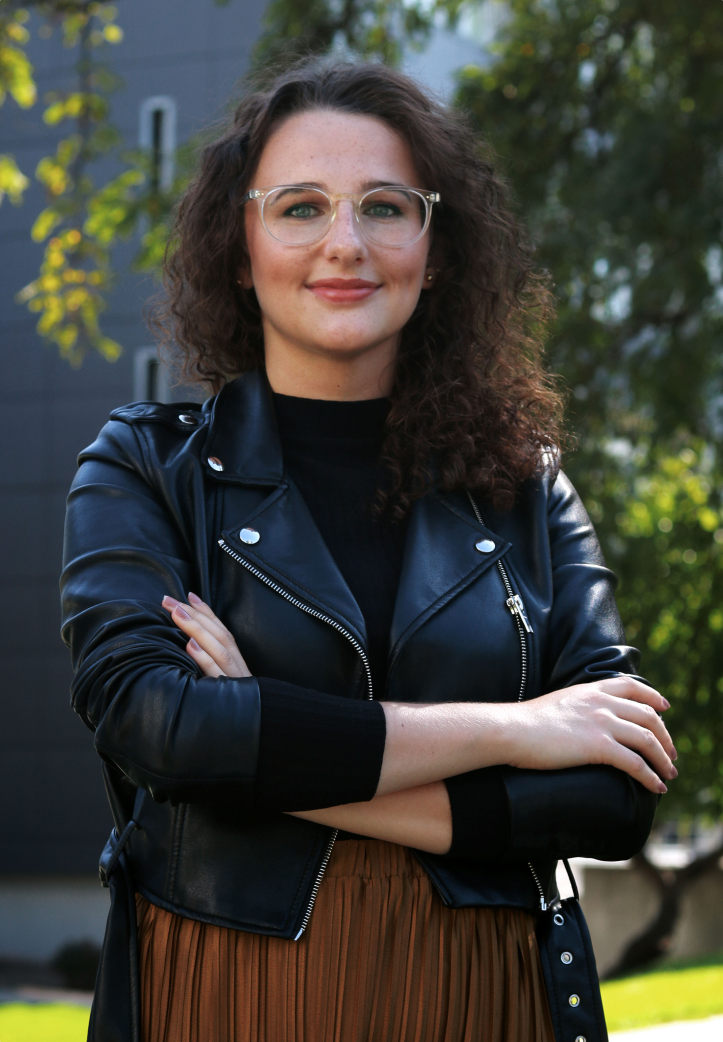 Marta Piksa
Marta Piksa PhD student at the Wrocław Doctoral School of Institutes of Polish Academy of Sciences at the Hirszfeld Institute of Immunology and Experimental PAS. She received her bachelor's and master's degrees in biotechnology at the Wrocław University of Science and Technology (Faculty of Chemistry). During the first degree, she studied the structures of DNA liquid crystals enriched with azobenzene derivatives. Since her master's studies, her research interests is focused on antimicrobial photodynamic therapy (APDT) and the topic of her PhD thesis is the mechanisms of bacterial cell photoinactivation.
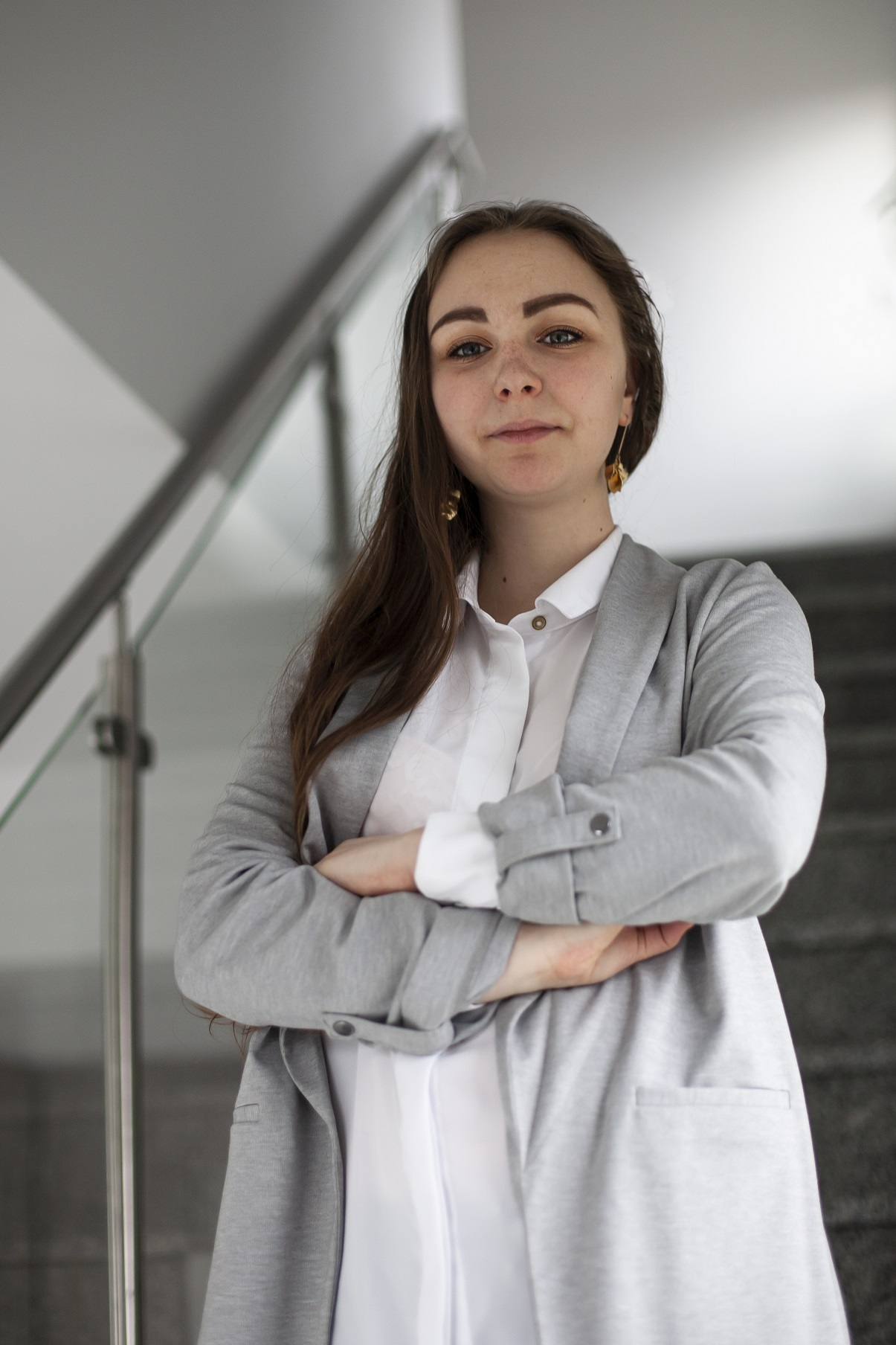 Michalina Ślemp
Michalina Ślemp Michalina defended the title of Bachelor of Engineering in 2020 as the 2nd in Materials Engineering and 7th at the Chemistry Department of the Wrocław University of Science and Technology (WUST), then continued her studies in Advanced Nano- and Bio-materials (MONABIPHOT), which she graduated with honors in 2022. In the years 2020-2021, she worked as a R&D engineer in the nanotechnological company Nanores.
During her studies, Michalina worked in a research project financed by the Polish National Science Center covering the research on the Marangoni effect, completed an internship at Université Claude Bernard Lyon 1 in France and wrote 2 scientific papers. From October 2022, she began a combined doctorate at the same university and CNRS under the supervision of Prof. Pierre-Francois Brevet and Prof. Stéphane Parola at the Institut Lumière Matière, where she joined the research group Non-Linear Optics and Interfaces (ONLI). PhD thesis topic: Chiral plasmonic nanoparticles for nonlinear optical sensors.
During her studies, she was not only involved in university projects, but also belonged to the Student Council of Chemistry Department (10.2018-04.2021), where for 2 years she was the Editor-in-Chief of "Kulisy W3" - a monthly magazine of the Chemistry Department established to promote the science and life of the university. In May 2020, she became the Leader of the Culture Section of the Student Council W3, where she worked on various projects until April 2021. In March 2021, she was accepted into the BEST Wrocław organization, which brings together students from technical universities from all over the world.
Her interests include the optical properties of various materials, including nanoparticles, non-linear optics, light-matter interactions, scanning electron microscopy and its application to fabrication of nanostructures, as well as heat flows in liquids and colloids with particular emphasis on the Marangoni effect.